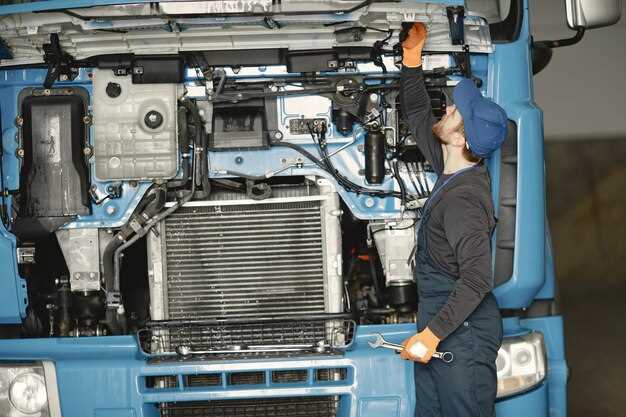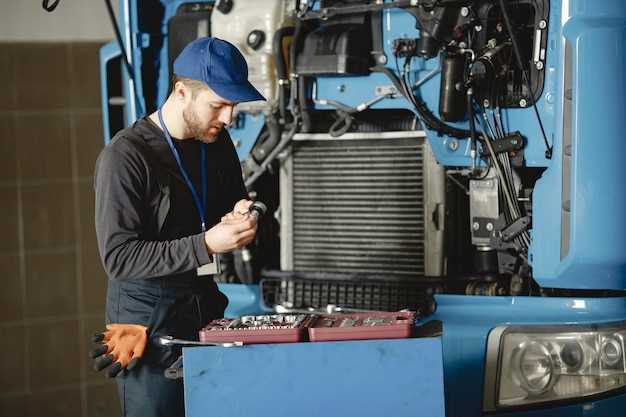

Diesel trucks have long been recognized as the go-to solution for towing heavy loads, thanks to their exceptional performance characteristics and engineering design. Unlike gasoline engines, diesel engines are built to deliver higher torque at lower RPMs, making them particularly well-suited for moving substantial weight. This capability is crucial when navigating steep inclines or rough terrains, which are commonly encountered in heavy towing scenarios.
The efficiency of diesel engines plays a critical role in their towing proficiency. Diesel fuel has a higher energy density compared to gasoline, allowing diesel engines to generate more power while maintaining fuel efficiency. This means that not only can diesel trucks pull heavier loads, but they can also do so with less strain on the engine, resulting in better longevity and reliability during demanding tasks.
Furthermore, diesel trucks are often equipped with advanced towing features and technologies that enhance their capability. With robust transmission systems and additional cooling mechanisms, these vehicles are designed specifically to handle the challenges that come with towing. Consequently, owners can trust that their diesel trucks will perform optimally when faced with the rigors of heavy hauling.
Why Diesel Trucks Excel at Towing Heavy Loads

Diesel trucks are widely recognized for their superiority in towing heavy loads. This performance can be attributed to several core attributes associated with diesel engines and their design.
- Torque Generation: Diesel engines produce significantly higher torque compared to gasoline engines. Torque is essential for towing, as it provides the necessary pulling power required to move heavy trailers and equipment. The high torque output available at lower RPMs allows diesel trucks to get moving with substantial weight effortlessly.
- Engine Durability: Diesel engines are built for strength and longevity. Their robust construction, including heavy-duty components, allows them to handle the stress and strain of towing heavy loads without suffering from wear and tear as quickly as gasoline engines might.
- Fuel Efficiency: Diesel trucks generally offer better fuel efficiency, especially under heavy loads. The energy density of diesel fuel is higher than that of gasoline, meaning that a diesel engine can travel further on the same amount of fuel. This is particularly advantageous for long-haul towing.
- Cooling Systems: Diesel engines are equipped with advanced cooling systems designed to manage the additional heat generated during heavy towing. This results in better overall performance and reliability while handling substantial weights.
- Towing Capacity: Manufacturers design diesel trucks with increased towing capacities. This is facilitated by the combination of superior power delivery, structural integrity, and accessories specifically aimed at enhancing towing capability.
In summary, the combination of strength, high torque, durability, and fuel efficiency positions diesel trucks as exceptional vehicles for towing heavy loads. These features not only improve performance but also provide peace of mind for those who rely on their trucks for substantial towing tasks.
Torque and Horsepower: Key Factors in Diesel Performance
When it comes to towing heavy loads, the concepts of torque and horsepower are crucial in understanding the performance of diesel trucks. Diesel engines are designed to deliver maximum torque at lower RPMs compared to their gasoline counterparts, providing the strength needed to pull substantial weight efficiently. This attribute makes them particularly well-suited for heavy-duty applications.
Torque refers to the rotational force produced by the engine, and in diesel engines, it is achieved through the combustion of fuel and air in a high-compression environment. This results in greater strength at lower engine speeds, enabling diesel trucks to move heavy trailers, boats, or construction equipment with ease. The immediate responsiveness of torque allows for smooth acceleration when starting from a stop, crucial for towing tasks.
Horsepower, on the other hand, is a measure of how quickly work can be done, calculating the product of torque and engine speed. While horsepower is important for overall speed and performance, in the context of towing, torque takes precedence. Diesel engines achieve a balance of both torque and horsepower, delivering sustained performance under load without overworking the engine.
The combination of high torque and sufficient horsepower in diesel trucks translates into exceptional towing capabilities. This means that drivers can confidently haul heavy loads with minimal strain on the engine, contributing to longevity and reliability. Additionally, the efficiency of diesel engines allows for better fuel economy when towing, making them a preferred choice for those who rely on their vehicles for heavy-duty tasks.
Fuel Efficiency and Range: Advantages for Long Hauls
When it comes to towing heavy loads over long distances, diesel trucks stand out due to their exceptional fuel efficiency and range. Diesel engines produce more torque than their gasoline counterparts, which directly translates to better performance under heavy loads. This strength allows diesel trucks to utilize fuel more effectively, providing an advantage when towing large trailers or equipment.
The efficiency of diesel engines results in fewer fuel stops during long hauls, enhancing productivity and reducing downtime. With a greater fuel capacity, these trucks often have a significantly extended range, enabling drivers to cover vast distances without frequent refueling. This feature is particularly crucial for commercial drivers who depend on time-sensitive deliveries.
Furthermore, the ability to maintain high speeds while towing means that drivers can optimize their routes, making them less susceptible to fuel price fluctuations. The combination of strength and fuel efficiency not only improves the viability of long-distance hauling but also contributes to lower overall operating costs for businesses reliant on trucking.
Durability and Maintenance: Ensuring Longevity Under Load

Diesel trucks are renowned for their strength, particularly when it comes to towing heavy loads. This capability is not just a function of their powerful engines, but also of their overall durability. A diesel engine is built to withstand more stress and harsher conditions compared to its gasoline counterparts. The robust construction of diesel engines typically includes reinforced components, such as heavier-duty crankshafts and pistons, designed to endure the increased torque produced during towing.
To ensure the longevity of diesel trucks under load, regular maintenance is essential. Adhering to the recommended service intervals for oil changes, filter replacements, and fuel system cleaning helps maintain engine performance. High-quality diesel fuel and additives can also play a significant role in preventing fuel system issues and reducing wear over time.
The cooling system in diesel trucks is specifically engineered to handle extended periods of operation under heavy loads. Regular checks and maintenance of the coolant system, including radiator inspections and fluid changes, are crucial to prevent overheating, which can severely damage engine components.
Furthermore, the transmission system in diesel trucks is typically designed for heightened load capacity. Ensuring proper transmission fluid levels and regular inspections can help identify potential issues before they lead to costly repairs. A well-maintained transmission system enhances towing efficiency and contributes to the overall durability of the truck.
In summary, the strength and durability of diesel trucks make them ideal for heavy towing. However, consistent maintenance practices are vital for ensuring their longevity and performance under load, ultimately leading to fewer breakdowns and a longer service life.







